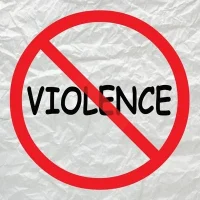Deadline: 15-Jan-24
The Global Community Engagement and Resilience Fund (GCERF) in collaboration with the CSM of Kyrgyzstan, is pleased to announce a call for expressions of interest for CSOs in Kyrgyzstan to form a consortium and become a Principal Recipient (PR) of GCERF funding.
GCERF will fund consortia of CSOs to build capacity of PVE and R&R actors at the local level and reinforcing local mechanisms and institutions. Consortium grants are managed and supported by the PRs, who are the legal recipients of GCERF funding and provide funding to other consortium members or “Sub-Recipients” (SR).
GCERF intends to grant two or three consortiums. The first grant may support building an enabling environment for preventing violent extremism. The second grant may support rehabilitation and reintegration, including capacity building for frontline workers and institutions (and multidisciplinary teams). The third grant is intended to support the correctional and probation services with the challenges around radicalisation in prisons and the reintegration of ex-offenders.
Areas
- GCERF’s planned activities in collaboration with grantees in Kyrgyzstan following key areas:
- Strengthening Capacity of Rehabilitation Centers, Government Authorities, and Media:
- Assess the overall capacity of rehabilitation services for returnees from Iraq and Northeast Syria.
- Enhance the skills of rehabilitation center staff through training programs
- Improving the Enabling Environment for Returnees:
- Map community perceptions about returnees.
- Identify barriers and enabling factors for returnees and community influencers.
- Providing Livelihoods Alternatives for At-risk Individuals in PVE Efforts:
- Build on existing good practices and lessons learned from previous initiatives with private sector actors.
- Coordinate with key actors and leverage previous results and good practices for livelihoods programming.
- Supporting Resocialization and Integration of Individuals Charged with VE and Released from Prisons:
- Conduct a specific needs assessment on the effectiveness of probation services.
- Strengthening Capacity of Rehabilitation Centers, Government Authorities, and Media:
In line with the Investment Strategy for Kyrgyzstan and Country Needs Assessment, the focus of the investment will be:
- Who
- Through grants to Kyrgyz civil society organisations (CSOs), GCERF will support:
- Children and young people (up to the age of 18) returned from Iraq and northeast Syria
- Women returned from northeast Syria
- Vulnerable members of the communities into which these children, young people, and women will be returning, including:
- Children and young people (boys and girls) who are at risk of radicalisation and recruitment (from 7 to 18 years of age)
- Their family members
- Staff of the support infrastructure for rehabilitation and integration, including:
- Frontline workers (psychologists, theologians/theologists, social workers)
- Staff of formal educational institutions
- Local and national authorities
- Select Media (the GCERF CNA identified certain organizations working in this domain)
- Through grants to Kyrgyz civil society organisations (CSOs), GCERF will support:
- Where
- The regions of Chui, Issyk-Kul (districts of Ak-Suu and Tyup), Jalal-Abad (districts of Suzak), and Osh (districts of Aravan, Kara-Suu, Nookat and Uzgen) the outskirts of Osh and Bishkek cities, Kyzyl-Kiya city in Batken region, and the district of Ak-Talaa in Naryn region.
- Current policy frameworks in Kyrgyzstan offer an opportunity for GCERF’s support through collaboration with civil society partners at three distinct levels of government and society, as outlined below:
- The National level
- The Regional/Provincial level
- The District level
- The Community (city, village) level
- What
- In alignment with the Investment Strategy, the funding of a consortium will be directed towards strengthening the following objectives:
- The rehabilitation and reintegration of people returning from Iraq and northeast Syria, with a special focus on women and children.
- Capacity strengthening for frontline workers, psychologists, theologians/theologists, social workers, staff of educational institutions, and local and national authorities.
- The resocialisation and reintegration of people formally charged with extremism and exiting prison facilities.
- Creating an enabling environment for return, rehabilitation, resocialisation, and reintegration in target communities.
- CSO actions will be implemented in collaboration with government authorities and aligned with existing R&R strategies.
- In alignment with the Investment Strategy, the funding of a consortium will be directed towards strengthening the following objectives:
- How
- By providing grants to Kyrgyz CSOs to prevent violent extremism and to support the rehabilitation and reintegration of people returning from Iraq and northeast Syria and the reintegration of people released from prison.
Funding Information
- GCERF plans to sign grant agreements with CSOs by the beginning of Quarter 2. GCERF will fund up to three consortium grants in Kyrgyzstan.
- The grant size will be a minimum of USD 500,000. GCERF plans to invest USD 2.5m in 2024 as it is looking for additional resources.
Grant Duration
- The grants will be at least 28 months and no more than 40 months.
Eligibility Criteria
- Grantee
- Each consortium should be led by a Principal Recipient (PR) responsible for providing subgrants to other consortium members (Sub-Recipients). Priority will be given to consortia whose members have experience implementing socioeconomic and governance programmes, specifically in the context of preventing violent extremism. Experience with implementing rehabilitation and reintegration programming is also highly desirable. Minorities, women, and youth-led organisations have an added advantage.
- Applicants are asked to demonstrate that they and possess the required capabilities to be a PR of GCERF funding.
- Prerequisites
- Appropriate legal registration of the consortium lead in Kyrgyzstan.
- Willingness and capacity to accept and fulfil the role of a PR.
- Capabilities
- Established relationships and credibility with the relevant national and local authorities, institutions and front liners (e.g. multidisciplinary teams, schools, theologians/theologists, psychologists, social workers, etc.), and other stakeholders involved in R&R of FTFs and their families.
- Minimum three years of experience with programme management centered on community engagement, coordinating with multiple stakeholders and addressing various forms of extremism.
- Experience in managing consortiums and providing capacity support to small grassroots organisations.
- Experience in managing sub-recipients and assessing and enhancing their capacities.
- Ability to manage community-based partners and implement multiple grants out of a consortium grant.
- Experience and capacity in financial management and in the management of and accounting for donor grant funding.
- Willingness and capacity to engage international partners as subrecipients and service providers.
- Prerequisites
For more information, visit GCERF.









































